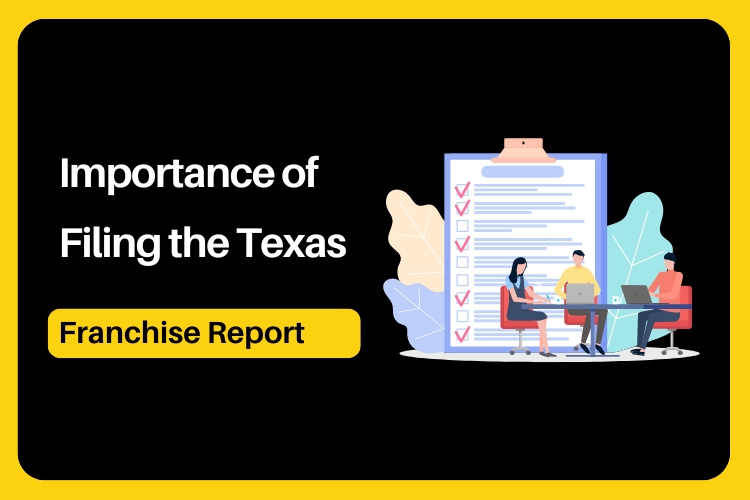
The Importance of Filing the Texas Franchise Report
In Texas, the franchise tax is a privilege tax imposed on each taxable entity formed or organized in Texas or doing business in Texas.
Filing the Texas Franchise Report is crucial for several reasons:
1. Compliance: Companies in Texas are legally required to do this. Failure to file can result in penalties, interest, and even the forfeiture of the right to conduct business in the state.
2. Good Standing: Filing on time helps the entity stay in good standing with the Texas Comptroller’s Office, which is needed for many business transactions and contracts.
3. Avoiding Penalties: If you file your taxes late, you may have to pay penalties and interest, raising your business’s tax bill.
Thresholds for Filing
For the Texas Franchise Tax, certain thresholds determine whether an entity is required to file:
1. No Tax Due Threshold: For reports due in 2023, entities whose total revenue falls below a certain amount ($2,470,000) may file a “Public Information Report.
2. Entities with total revenue below $20,000,000 can use the E-Z Computation report for 2023. This report offers a reduced tax rate of 0.331%. (Please note that the threshold for E-Z Computation may change, and verifying the current threshold with the Texas Comptroller’s office is essential.)
Choosing Between EZ Computation and Long Form
Entities with a total revenue higher than the “No Tax Due Threshold” but lower than the E-Z Computation threshold should assess which option, the E-Z Computation or the long-form franchise tax return, would be more advantageous.
The E-Z Computation method is more straightforward and may result in a lower tax rate, but it may only sometimes be the most tax-efficient option. Various factors, including deductions, credits, and margin calculations, can impact the total tax liability.
Businesses are recommended to conduct a comparative analysis or seek advice from a tax professional to ascertain the most advantageous method of filing.
Deadlines for Filing

The annual Texas Franchise Tax Report is due on May 15th each year. If May 15th falls on a weekend or holiday, the due date is the next business day.
How to File an Extension
To file an extension for the Texas Franchise Tax Report:
1. Automatic Extension: Most entities can obtain an automatic extension if they pay at least 90% of the tax owed or the minimum $1,000 franchise tax by May 15th.
2. Extension Request: An extension request form must not be submitted to the Comptroller’s office; the extension is granted upon receipt of the payment.
3. Duration of Extension: The automatic extension for non-E-Z computation filers is until November 15th. For E-Z Computation filers, the extension is until August 15th.
4. Online Filing: Entities can pay the franchise tax and file their reports online through the Texas Comptroller’s Webfile system.
5. Payment Options: Payment can be made via electronic funds transfer, credit card, or check/money order.
Please note that obtaining an extension to file the report does not grant additional time to make the tax payment. Interest accrues from the original due date on any unpaid tax.
Conclusion
Filing the Texas Franchise Report is a critical annual task for businesses operating in Texas. Knowing the new filing requirements, thresholds, and deadlines for 2023 can help you ensure you are following the rules and avoid unnecessary penalties.
Entities should seek guidance from a tax expert to navigate the intricacies of the Texas Franchise Tax, assess the most suitable method for filing, and guarantee precise and punctual submission.
